YOU ARE VIEWING A DEMO REPORT
Beth Person
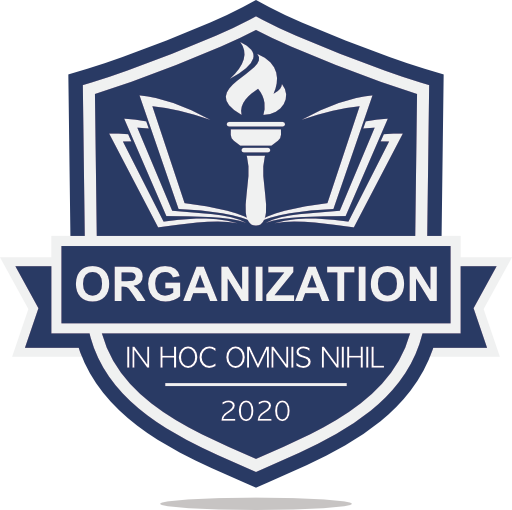
8. Putting it all Together – Launching Your Legal Career
Organization Demo
Introduction 00
Back to Table of ContentsYour professional career is beginning and your student career is coming to a close. You have accepted a job offer; are deciding among competing offers; or are actively looking for the best opportunities for you. Wherever you find yourself, whatever position you hope to have, and whichever environments are most appealing to you, revisiting the essentials – your strengths, values, and preferred work culture and environments – puts you on the right path to securing the position(s) best for you. Utilize the material in this report and the accompanying activities to make more conscious and deliberate career choices. Knowing your personal style and the narrative you wish to live out, and appreciating how this connects (or doesn’t!) with typical legal work settings, means you spend less time and effort chasing possibilities that are ill-suited and more time on what’s truly meaningful.
01 Defining My Narrative & Purpose
Back to Table of ContentsThis section uses your personality type to help illustrate your natural abilities and strengths
The natural abilities and strengths of Beth's personality type include:
When Beth is able to utilize fully her natural abilities and talents, she performs at a higher level. Her ability to perform well and enjoy her job depends upon the degree to which she is able to leverage and capitalize on her strengths.
Beth has probably already experienced something like this: Her work aligns well with her natural abilities and she is motivated to bring her best to her roles and responsibilities. Her performance seems to flow, progress on projects is smooth, and the outcomes are successful.
The opposite is also true. When Beth is not working on a project or studying a subject not aligned with her natural abilities, her stress level tends to increase and she finds it difficult to face into her obligations. The result is not satisfying or satisfactory. The key is for Beth to be in "alignment" with her work.
Every profession offers a variety of roles and work expectations. This is true even within a specific role. If Beth can direct her career path into industries and roles where she is able to align and develop her natural abilities, she will be more satisfied and successful.
Anyone can work on developing a skill. When a skill is listed below, we are referring to a "preference" toward that skill. The person is likely to enjoy using and developing the skill. When something is listed as a "natural ability", it is refering to the same concept, a preference. It does not automatically mean the person has or will develop it. It does mean that the person will likely prefer and enjoy developing the ability. Which means a likelihood of spending more time developing it.
- Natural ability to think strategically
- Natural ability for coordinating, organizing and leading
- Natural ability to make things more efficient
- Natural ability to improve systems
- Natural ability to solve very complex problems
- Naturally ingenious
- Natural ability to invent and create
- Natural ability to study and learn technology and science
- Natural ability for research and development
- Natural ability to work independently without supervision
- Naturally persistent and resolute
Original work by: Michael Robinson © Step Research Corporation
02 Visual Type™ and Go-To Behaviors
Back to Table of ContentsThis section is a visual model of Carl Jung’s Psychological Types showing how you use all eight behaviors and which two are dominant for you.
Visual Type™ provides a visual guide to the predictive use and accessibility of each behavior and an instantly recognizable way to see differences between people. This helps individuals with self-awareness. It also helps others understand what they can expect from the individual. The goal of this section is to make it immediately obvious to non experts how the functions relate to each other and the person based on their whole type.
Analyze
Decide based on logically correct or incorrect and evaluate the best approachBeth uses an internal, logic-based decision-making process that focuses on what is correct or incorrect. Beth looks inside before making decisions, using her mind to create order, to organize and categorize information, identify anomalies, deduce probabilities and understand how things work.
Invent
Look to the new and different ideas and explore many possibilitiesBeth uses brainstorming, a verbal questioning to identify patterns that provide insight. Beth looks to Invent as her go-to behavior for gathering information, she prefers seeking answers through brainstorming, identifying patterns and innovation. Beth looks outside the box for answers, seeking something new.
Understanding Beth's Visual Type™
- Beth's largest go-to box is Analyze, showing her strength of doing fact-based analysis of the problem based on data, not conjecture or opinion.
- What few people see below the line is how analytical she is when making decisions.
- Beth's supporting go-to box is Invent: brainstorming new ideas, starting new projects, thinking out of the box and finding creative solutions to problems.
- Beth's other three top boxes - Stabilize, Insight, and Value - are drafted to support her Analyze function, which she experiences as her Superpower of Super Analyzing.
You use all eight Go-To boxes but we expect that you find certain ones easy and fun and others slow and tough.
Think of the box size as telling you how natural you are likely to find activities related to that mental function. The smaller the box, the more energy it will likely take you to do any related activities. The bigger the box, the more likely you are to get energy from doing related activities.
The largest box is your largest function or Superpower.
The boxes above the line are what other people see - they are extraverted. The boxes below the line are introverted and are below the surface.
If your main go-to box is introverted, your most commonly used mental function is invisible to others. If your main go-to box is extraverted, others cannot see your supporting introverted box.
- Exciting
- Quick acting
- Risk taking
- Details
- Immediate need
- Exciting
- Quick acting
- Risk taking
- Details
- Immediate need
- Remembering
- Tells it from beginning to end
- Recalls in time sequence
- Details
- Nothing is too old
- Remembering
- Tells it from beginning to end
- Recalls in time sequence
- Details
- Nothing is too old
- Sharing ideas
- Takes a global perspective
- Brainstorming
- Identifies patterns
- Is not bothered by details
- Sharing ideas
- Takes a global perspective
- Brainstorming
- Identifies patterns
- Is not bothered by details
- Gaining insight from the unknown
- Having the “AHA”
- Connects the unconnected
- Difficult to explain
- Processes randomly
- Gaining insight from the unknown
- Having the “AHA”
- Connects the unconnected
- Difficult to explain
- Processes randomly
- akes a removed or objective perspective
- Sounds level headed
- Works from a defendable position
- Uses external tools
- Arranges data logically
- akes a removed or objective perspective
- Sounds level headed
- Works from a defendable position
- Uses external tools
- Arranges data logically
- Invisible to others
- Everything is connected
- Developed with precision
- Nothing exists unless it is complete
- Systematic process
- Invisible to others
- Everything is connected
- Developed with precision
- Nothing exists unless it is complete
- Systematic process
- Everyone is at peace
- Wants everyone to be happy
- Appreciates others’ involvement
- Harmony in the moment
- Connecting with others
- Everyone is at peace
- Wants everyone to be happy
- Appreciates others’ involvement
- Harmony in the moment
- Connecting with others
- Shielded from others
- Timeless
- Peace within
- Going it alone
- Often visible only when violated
- Shielded from others
- Timeless
- Peace within
- Going it alone
- Often visible only when violated
Now
: Look to the present and immediate needs and explore what is currently availableNow is very adept at identifying details about something that is happening right now and can be acquired through the five senses. People using NOW tend to be very aware and in the moment, seeking tactics that they can implement right now. Now looks to the present and the immediate moment for solutions.
Engaging to Experience
Alive in the moment and aware of what the senses are able to immediately experience
What's Happening Now
Alive in the moment and aware of what the senses are able to immediately experience
The Now function triggers an immediate reaction to or an engagement of what is perceived, so it may appear as if one is quickly changing from one activity to another or shifting interest quickly from one thing to another.
People who prefer to or naturally use Now to acquire information report liking to "live life to the fullest" or "live on the edge". Often the physical risks are exciting. They also report doing things or saying things that get a recognition or a reaction from others in the moment.
Stabilize
: Look to the past, traditions and what worked and focus on consistencyStabilize is abot keeping an internal database of details that have been learned in the past. Stabilize compares today's data with past data to make an informed decision. People using Stabilize tend to check their memory, make comparisons to the past, and in general look to the past to verify information.
Reliving to Verify
Recalling the details of past experiences and reliving the motions that accompany them
Resurrecting the Past
Recalling the details of past experiences and reliving the motions that accompany them
When active, Stabilize might appear to be slow in responding or unmoved by the present moment. This is because the focus is not on the present event. Instead it is on examining all past similar experiences.
When people who prefer, or naturally use, this mental function share the experience it is as if they were sharing the video tape that is playing in the brain. They also know that the devil is in the details, so expect them to be uncomfortable leaving out the details when they are talking and wanting you to include the details when you are talking.
Recognize that the experiences being recalled may have occurred eons ago, yet they are being talked about as if they only occurred yesterday.
Invent
: Look to the new and different ideas and explore many possibilitiesInvent is about brainstorming, a verbal questioning to identify patterns that provide insight. People using Invent tend to prefer seeking answers through brainstorming, identifying patterns and innovation. Invent looks outside the box for answers, seeking something new.
Recognizing Patterns and Possibilities
Creating possibilities for the future and spontaneously recognizing patterns and connections
Envisioning to Improve
Creating possibilities for the future and spontaneously recognizing patterns and connections
Invent when active in a positive way tends to view the opportunities and possibilities positively. Information shared through this function may seem to be superficial or broad brush as the details or what is beneath the surface can be filled in later. The expressions tend to be global in nature.
Insight
: Look to how things connect, the future and predict possible outcomesInsight is about the process of identifying seemingly disconnected patterns to result in instant insight into a problem or situation. When using Insight people tend to visualize their goal or end result, focus on strategy, synthesize data almost unconsciously and predict results with surprising accuracy. Insight looks to and visualizes the future for answers.
Discerning the Essence
Synthesizing information and identifying the central theme, vision, or significance
Insight of Holistic Meaning
Synthesizing information and identifying the central theme, vision, or significance
The insights that are received are like nuggets of gold; however, often the person receiving the nugget does not know how to immediately explain it to others so that they perceive it as a nugget of gold as well. This is often because the nugget appeared as a flash of light or insight without supporting information, so when one attempts to explain why the insight should be trusted the mind is blank. Reflection time is almost always needed to allow some bits of information to drift into consciousness to support the value of the insight. Memory is symbolic and images and ideas are ever-changing.
Execute
: Decide based on measurable goals and drive towards objectivesExecute is about plans, organizing, schedules, and measures. Execute structures the decision-making process by directing and interacting with other people. Execute focuses on measurable goals. When using it, people tend to think out loud, notice quickly when something is out of sequence or order, set objectives and criteria for success, and create step-by-step procedures. Execute looks to influence and organize the world, even when not solicited to do so.
Planning and Regulating
Establishing goals and applying objective analysis to arrive at a logical, defendable decision
“Operationalizing”
Establishing goals and applying objective analysis to arrive at a logical, defendable decision
With Execute everything is supported with logically analyzed data. Execute analyzes information within specific boundaries. Western states are different from northeastern states. We can think of Execute as establishing boundaries for the problem or boundaries regarding information that will be considered. Execute involves living by specific rules, regulations and laws and believing others should, as well.
Analyze
: Decide based on logically correct or incorrect and evaluate the best approachAnalzye is about using an internal, logic-based decision-making process that focuses on what is correct or incorrect. When using Analyze people tend to look inside before making decisions, using their mind to create order, to organize and categorize information, identify anomalies, deduce probabilities and understand how things work.
Understanding Systems
Repeatedly applying system analysis to data to fit them in one’s subjective mental framework
“That’s Better Defined This Way.”
Repeatedly applying system analysis to data to fit them in one’s subjective mental framework
These frameworks are built with precision and take a long time to be completed; therefore, they are not going to be quickly discarded in favor of a different framework. Because this is an introverted function the framework or system is not visible to others. Others often do not get a glimpse of the framework until they arrive at a decision that is not consistent with the framework, at which time they get to witness the volcanic explosion.
One can think of Analyze as an internal filing system. Each file contains sub-files, which contain sub-files, and so-on. Thus, when one is using Analyze, the time it takes to evaluate information may take a substantial amount of time, as the person must check to see if the information fits within one's complex filing system. If there is no place in the filing system for the piece of information to go, it will be rejected until more information is received.
Consideration
: Decide based on people's needs and empathize with othersConsideration is about giving the other person's personal needs high importance in making a decision. Consideration gives priority to the feelings of others. When using Consideration people tend to be friendly and considerate, try to create harmony between other people, act with kindness, and will disconnect with people who do not show that they care. Consideration looks to help others grow.
Affirming and Validating
Expressing appropriate concern and appreciation so group harmony is maintained
“You Really Did a Great Job”
Expressing appropriate concern and appreciation so group harmony is maintained
Consideration is genuinely 'other focused.' It is the mental function used to assess how others will react to certain decisions. It involves knowing the appropriate thing to do and is satisfied when others are content and working together.
This function evaluates based on the possible impact on others. It strives for peace externally or peace among others and is about making sure others are not disturbed, annoyed or in conflict. Consideration involves conversing and connecting with others, being with others, appreciating others and celebrating with others. It's all about 'others.'
Value
: Decide based on ethically right or wrong and sync with individual valuesValue is about aligning personal missions with being understanding. Value decides in a way that promotes win-win solutions with the priority on other people's feelings and their own personal ethics and morals. When using Value people tend to make decisions that focus on what is right or wrong according to their own internal values. They then expresses their internal values through external actions.
Liking or Disliking
Feeling internal tranquility when reality matches what is uniquely and deeply valued
“This is the Only Acceptable Way”
Feeling internal tranquility when reality matches what is uniquely and deeply valued
These values are shielded and protected from attack by others and thus may make us feel alone, vulnerable, or even on the defensive. There is a bit of mystery as to who this person is and there is a sense of tranquility and personal serenity. The values involved change very little, if at all, over time.
When these values are attacked, the reaction is often as shocking to those triggering the reaction as it is to the one who is reacting. It is as if a sudden, unexpected explosion has occurred that is the opposite of the serene inner harmony that is generally sought. Value strives for peace internally or an internal calmness and sense that everything is right.
Original work by: Sterling Bates Gene Bellotti Robert McAlpine © Step Research Corporation
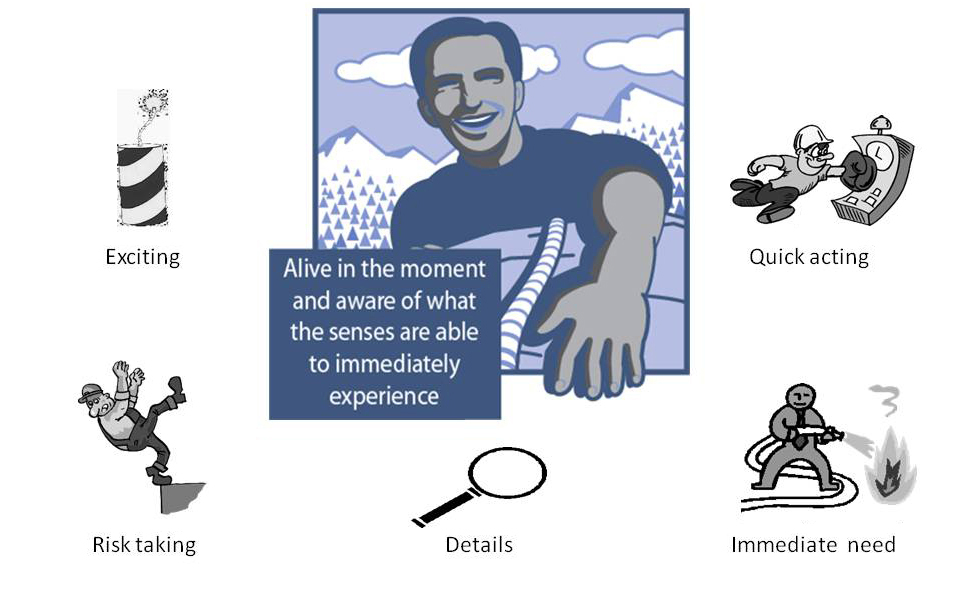
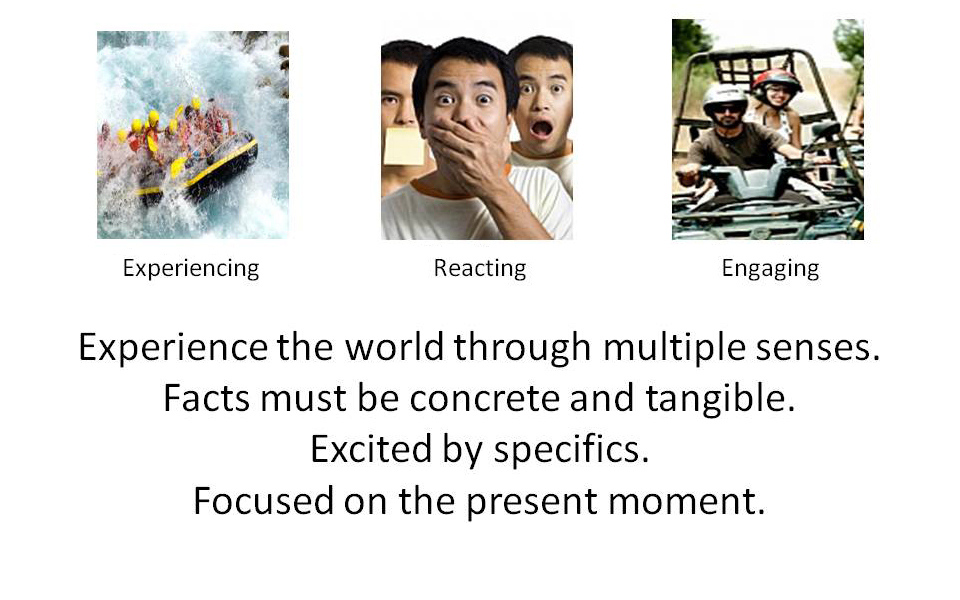 Now is about immediately engaging the world around us. We do this by perceiving information through any of our five senses. We might even be using multiple senses simultaneously. Remember we are talking about concrete information; otherwise, it would not be information we perceived through one of the senses.
Now is about immediately engaging the world around us. We do this by perceiving information through any of our five senses. We might even be using multiple senses simultaneously. Remember we are talking about concrete information; otherwise, it would not be information we perceived through one of the senses.
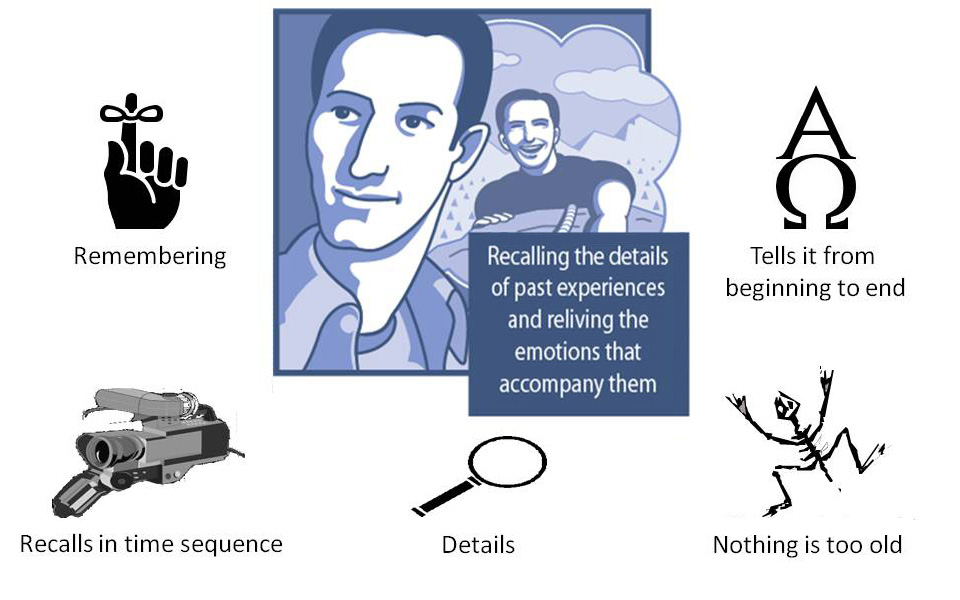
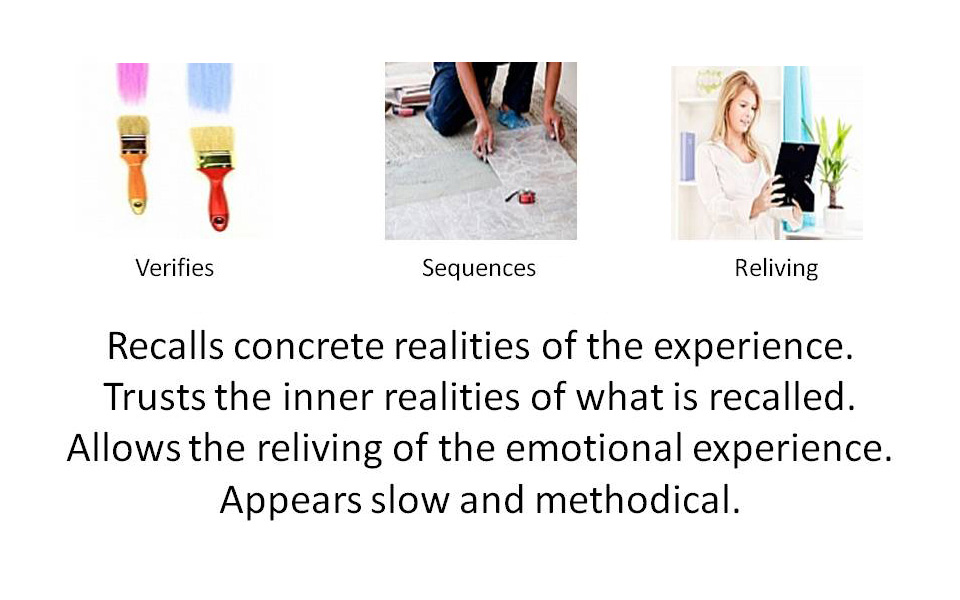 Stabilize is about checking out the present information by comparing it to previous experiences with similar information. We do this by recalling and reliving the past experiences in our lives. These are concrete experiences that include the emotional experiences or reactions we had to the experience being recalled. The recalled experiences are recalled from start to finish and if they are shared everything from start to finish must be shared.
Stabilize is about checking out the present information by comparing it to previous experiences with similar information. We do this by recalling and reliving the past experiences in our lives. These are concrete experiences that include the emotional experiences or reactions we had to the experience being recalled. The recalled experiences are recalled from start to finish and if they are shared everything from start to finish must be shared.
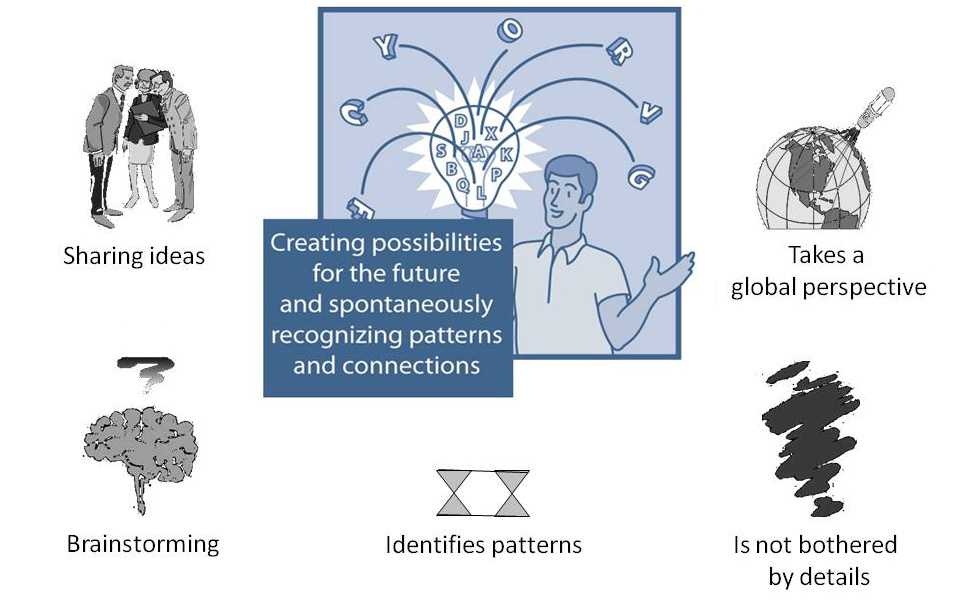
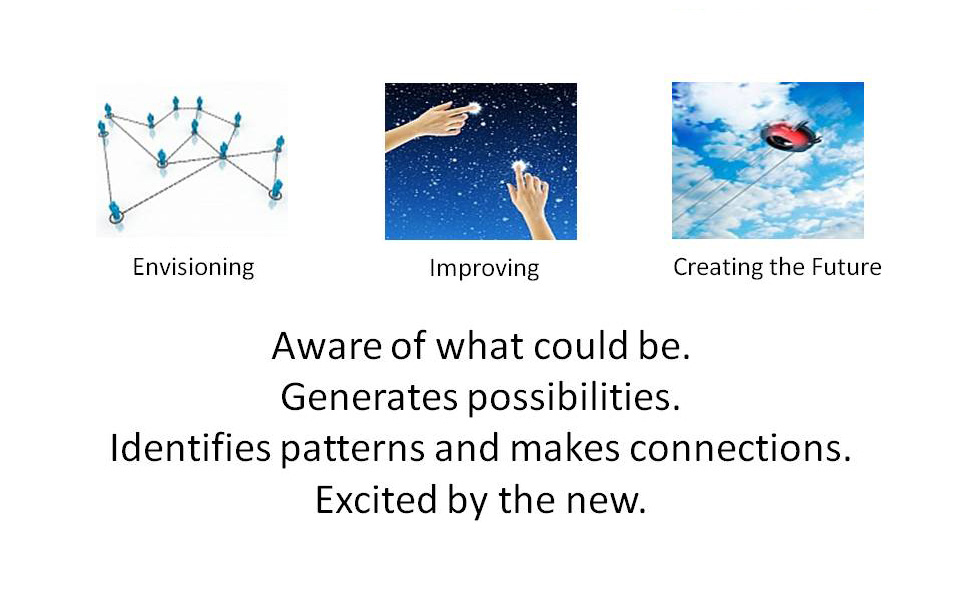 Invent is about identifying possibilities and opportunities related to what is happening in the real world. It is generating new ideas based on old ones. It is creating new ideas based on what someone else has shared. It expands one idea into many possibilities without the need for precision or detail.
Invent is about identifying possibilities and opportunities related to what is happening in the real world. It is generating new ideas based on old ones. It is creating new ideas based on what someone else has shared. It expands one idea into many possibilities without the need for precision or detail.
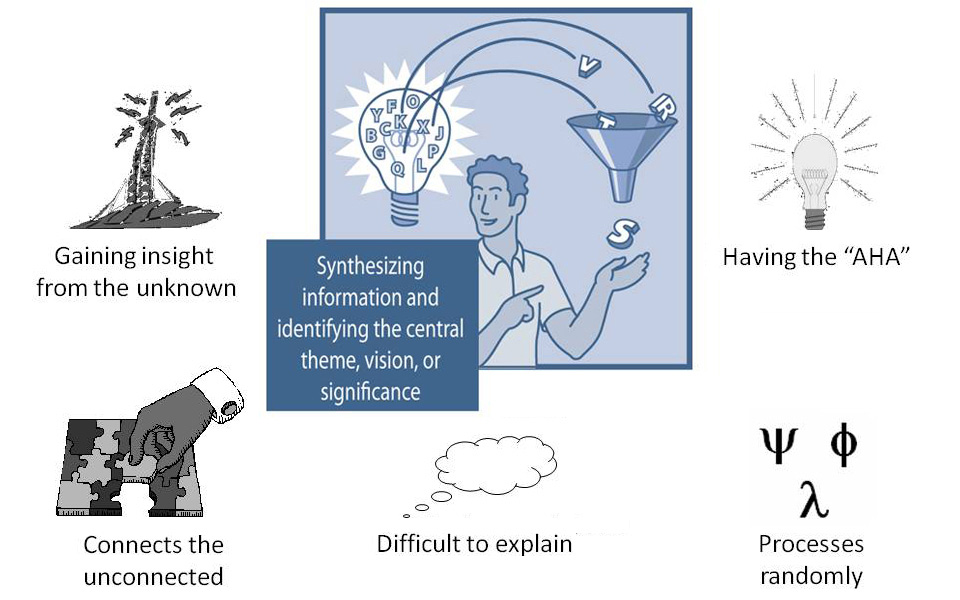
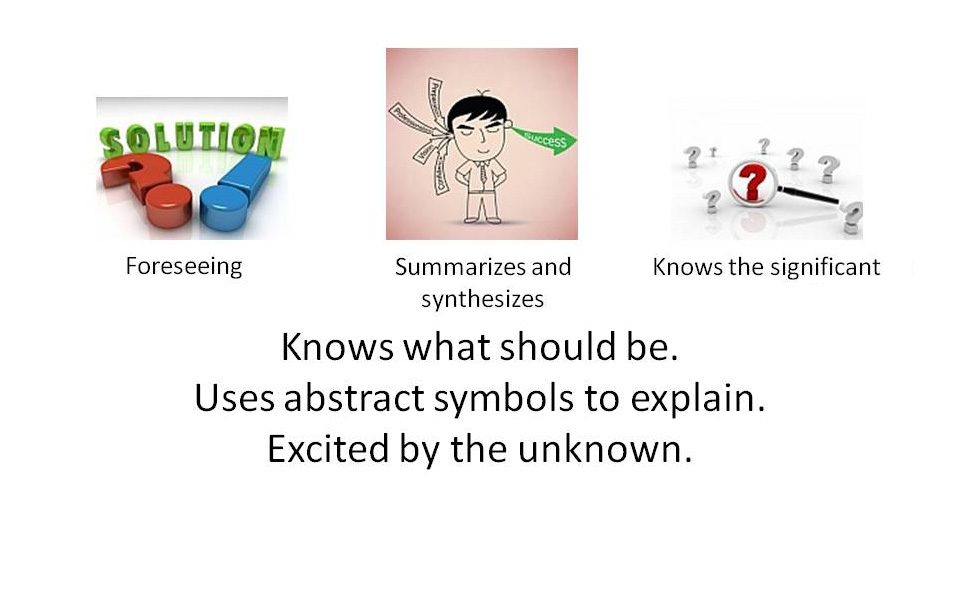 Insight identifies the opportunity or possibility that is the "best" without really knowing how it was identified. It is like a receiver getting signals from an unknown TRUSTED source. It tends not to focus on intermediate steps instead focusing on the end goal. One might connect with Covey's "Start with the end in mind" as an introverted intuiting approach.
Insight identifies the opportunity or possibility that is the "best" without really knowing how it was identified. It is like a receiver getting signals from an unknown TRUSTED source. It tends not to focus on intermediate steps instead focusing on the end goal. One might connect with Covey's "Start with the end in mind" as an introverted intuiting approach.
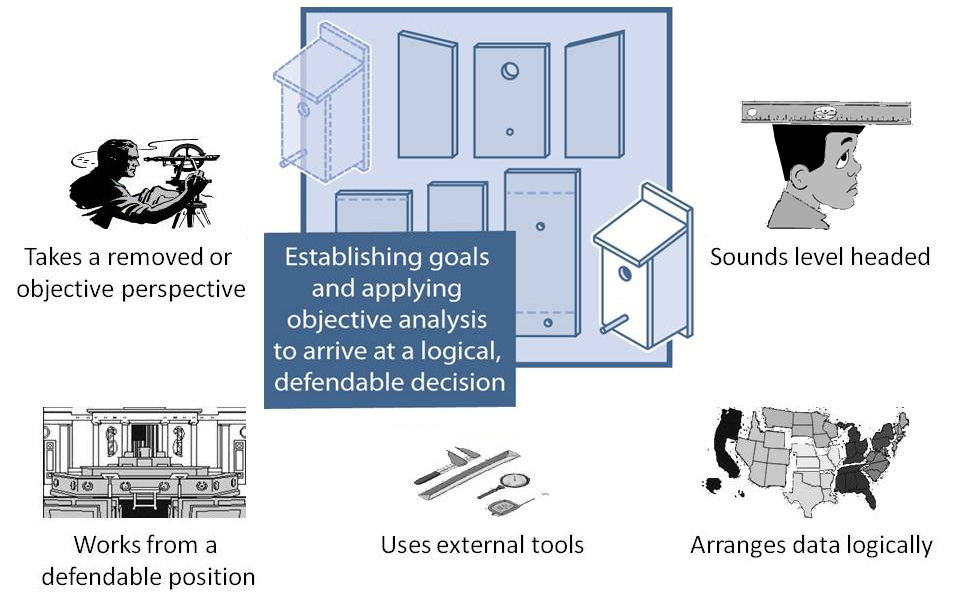
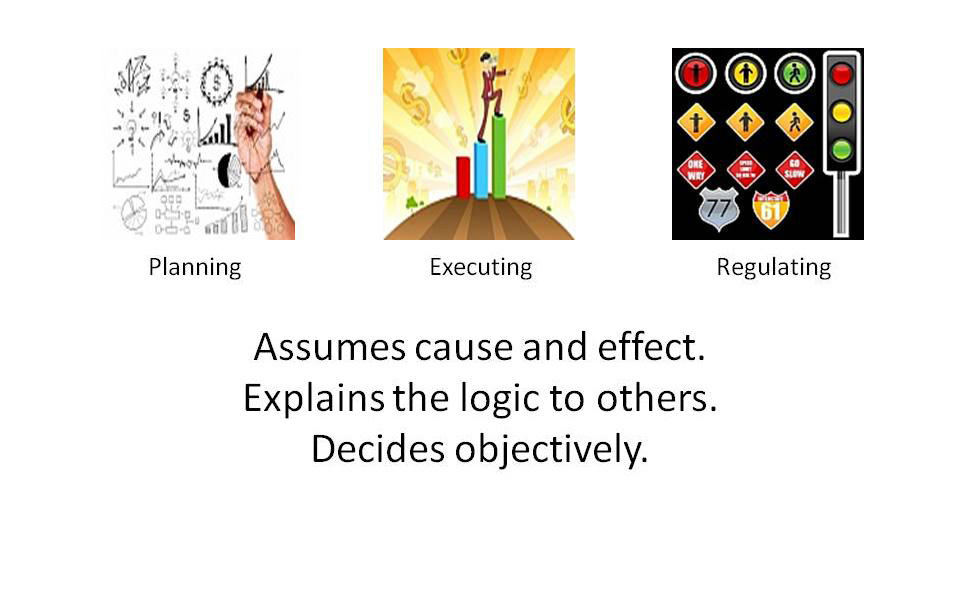 Execute uses accepted tools and techniques to evaluate the information much like surveying instruments are used to determine a specific location. This process organizes information in an orderly manner so the information can be analyzed objectively or impersonally.
Execute uses accepted tools and techniques to evaluate the information much like surveying instruments are used to determine a specific location. This process organizes information in an orderly manner so the information can be analyzed objectively or impersonally.
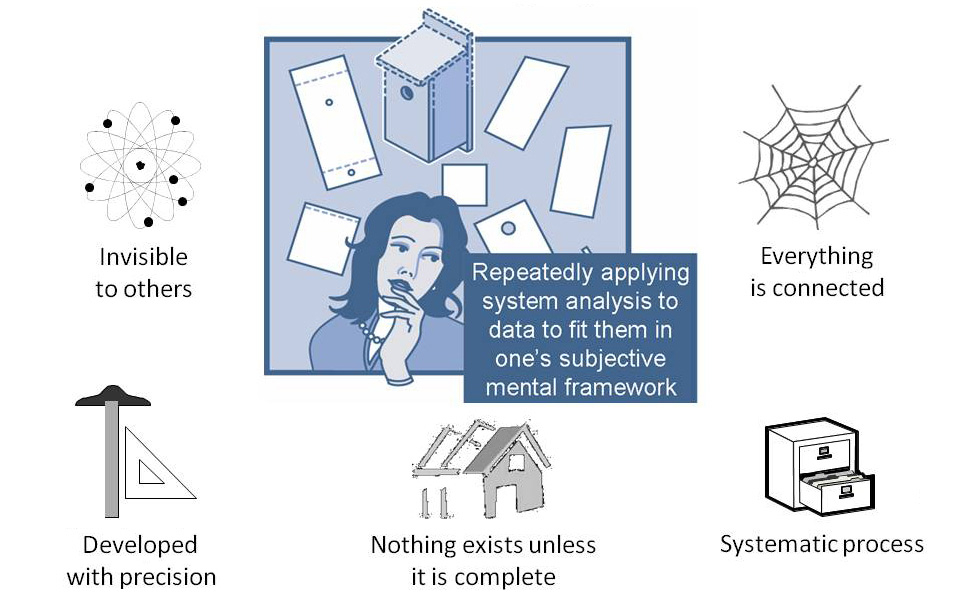
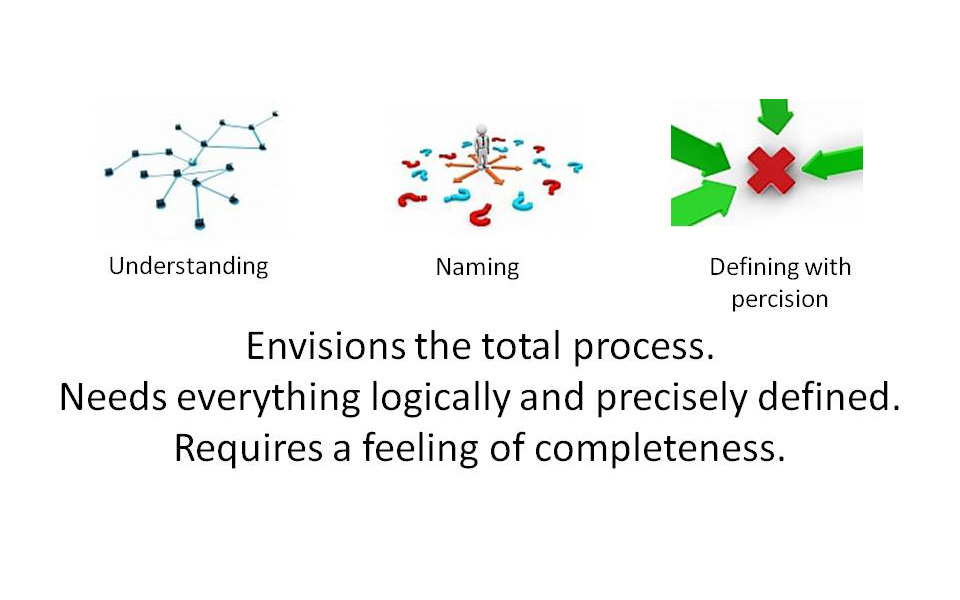 Analyze evaluates information based on how consistently and precisely the information fits within established internal systems or frameworks.
Analyze evaluates information based on how consistently and precisely the information fits within established internal systems or frameworks.
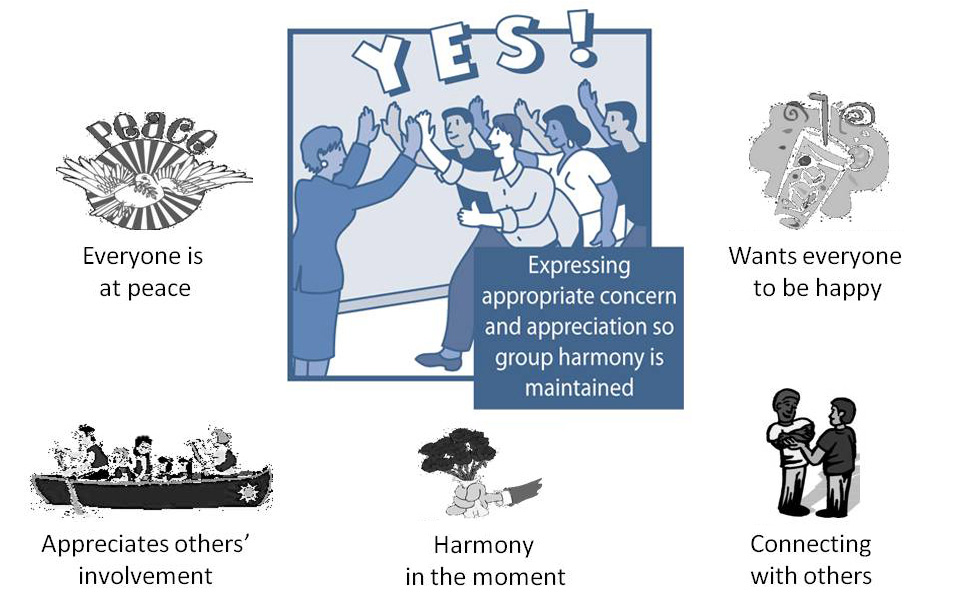
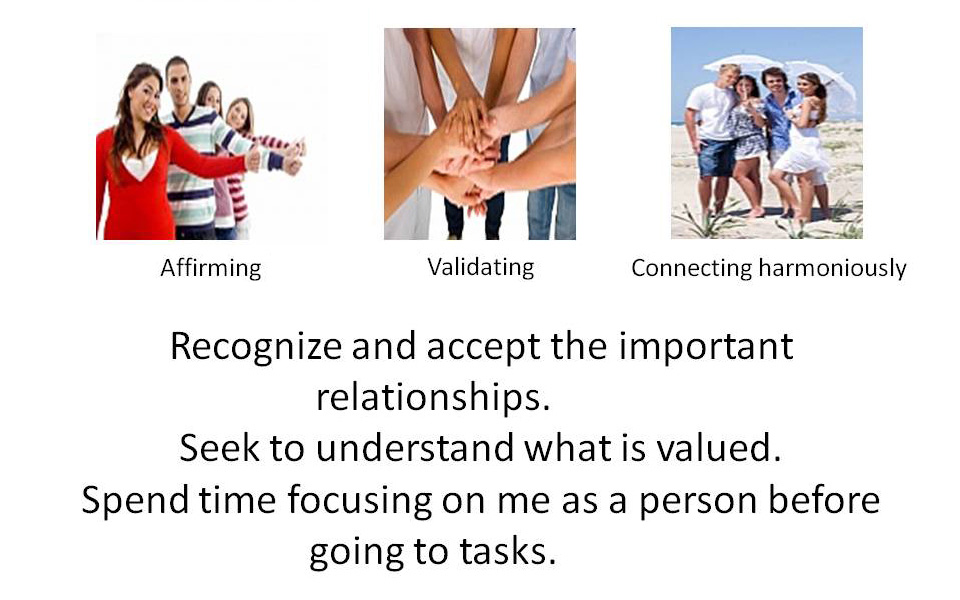 Consideration is about tuning in/noticing/reading the mood or the practical needs of others and then addressing or satisfying those needs.
Consideration is about tuning in/noticing/reading the mood or the practical needs of others and then addressing or satisfying those needs.
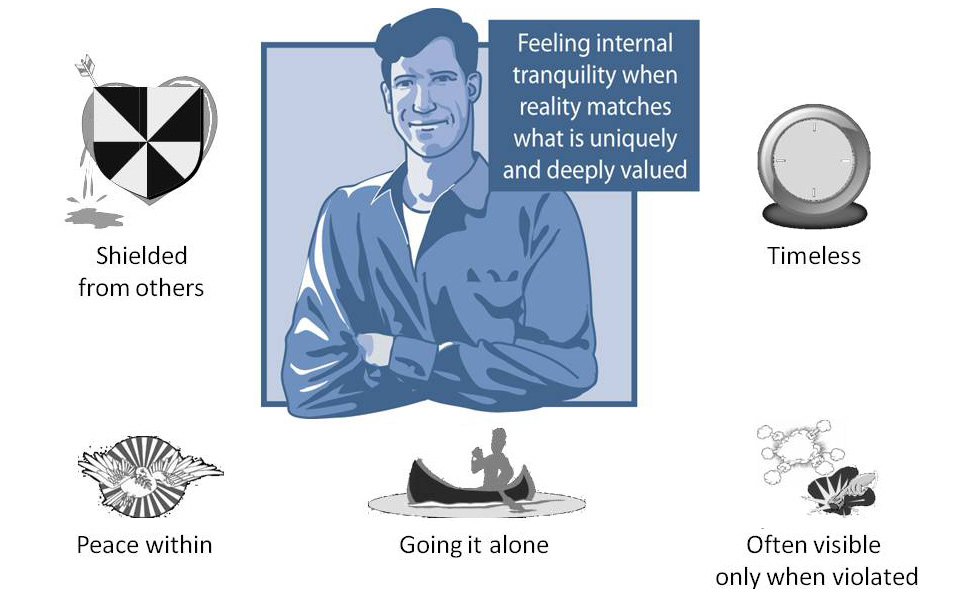
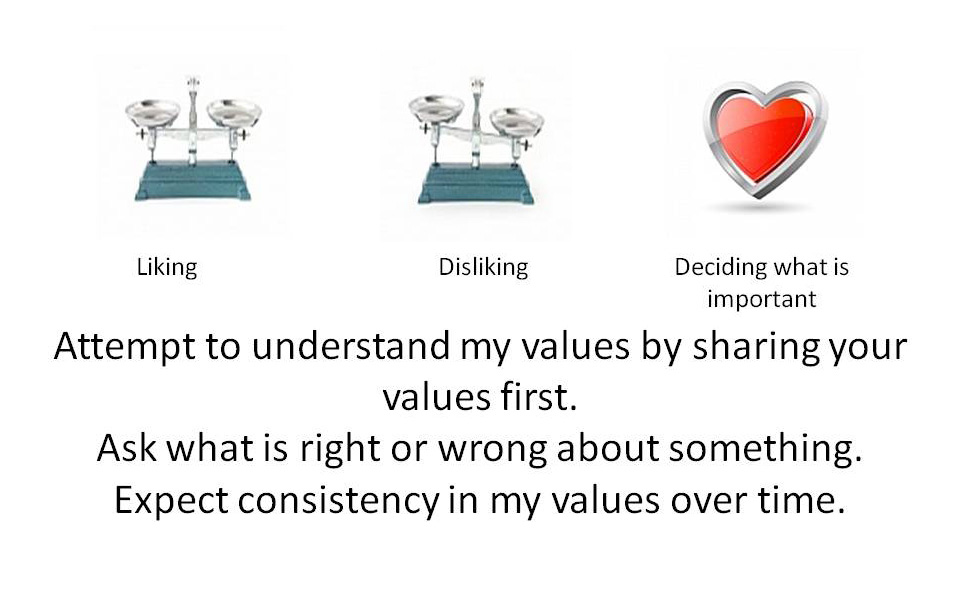 Value evaluates information based on one's unique values. It is easy for one to apply these values to identify what is right, but it is difficult for one to explain to others what one is using to determine what is right.
Value evaluates information based on one's unique values. It is easy for one to apply these values to identify what is right, but it is difficult for one to explain to others what one is using to determine what is right.